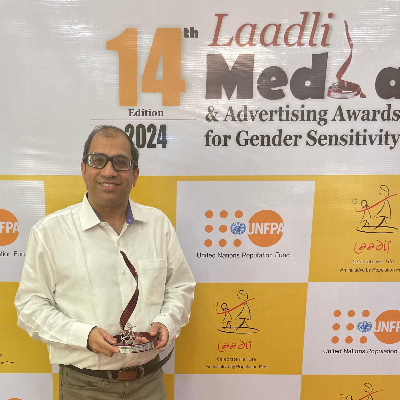Before delving into the life of Prithipal Singh, India’s legendary penalty corner specialist and member of the 1960 Olympic silver medal, 1964 gold medal and 1968 bronze medal-winning hockey teams, author and journalist Sundeep Mishra wants to explain how his fascination with the mercurial defender began.
ARTICLE CONTINUES BELOW VIDEO
Prithipal, 53, then Dean Student Welfare at Punjab Agricultural University (PAU) in Ludhiana, was shot dead by two assailants on the PAU campus on May 20, 1983. In his book Gunned Down, Mishra retraces Singh’s journey from Olympic glory to the events leading up to his murder.
“It was during the 2000 Sydney Olympics that someone from an Australian archive forum asked me about Prithipal Singh,” recalls Mishra. “I knew almost nothing about his heroics or the circumstances of his death. I felt bad. My father had spoken of him when I was a child, but it was only after Sydney that I felt the urge to dig deeper. I had read Truman Capote’s In Cold Blood, which chronicled a Kansas family’s murder, and I thought that maybe I could do something similar to tell Prithipal’s story.”
Story continues below this ad
Born in Nankana Sahib in erstwhile Pakistan, Singh became one of the world’s most feared penalty corner experts. He made his Olympic debut in Rome in 1960, where the Udham Singh-led Indian team lost 1-0 to Pakistan in the final, though Prithipal was the tournament’s highest scorer. He repeated the feat in the 1964 Tokyo Games, netting 11 goals as Charanjit Singh’s India beat Pakistan 1-0 for gold. In 1968, as co-captain with Gurbux Singh, he led India to a bronze in Mexico, again topping the scorers’ list.
“There was no doubt Prithipal was one of the best in the sporting world,” says Mishra. “Charanjit Singh often said he devised strategies even coaches could not fathom. He took on the Indian Hockey Federation’s top officials, and on the field, teams like Australia, Holland and Pakistan were mortally afraid of him.”
After stints with Punjab Police and Railways, Prithipal joined PAU as Dean Student Welfare. In the months before his death, the campus was roiled by unrest, beginning with the murder of Punjab Student Union (PSU) general secretary Prithipal Singh Randhawa, followed days later by the killing of handball player Piara Singh.
Mishra’s book details how Singh clashed with PSU leaders and opposed student politics, as well as the botched police investigation after his killing outside Thapar House on the morning of May 20, 1983. Among the revelations are a list of 16 students Singh allegedly believed were conspiring to kill him, later denied in court by the university official who found it, and a file from Singh’s home containing allegations of corruption involving staff, students and then vice-chancellor Dr Amrik Singh Cheema.
Story continues below this ad
Singh had reportedly sought a meeting with the Chancellor and was scheduled to meet the BB Mahajan Commission on June 8, 1983. He had also written to the Ludhiana SSP and the Vice-Chancellor warning of threats to his life, even predicting May 20 as a possible date of attack.
One accused, Bachittar Singh, surrendered in court, confessed, and led police to the murder weapon which was confirmed by forensic analysis before retracting his statement and alleging coercion. The case was later dismissed.
“Prithipal believed there was no place for politics in a university,” says Mishra. “His unwillingness to step back, much like on the hockey field, was part of his personality. But he could not gauge the political undercurrents in Punjab and at PAU then.”
Mishra laments that Singh’s legacy has been overshadowed by his killing. “The government and system failed to find his killers. We lost not just a brilliant player but an articulate mind who could have enriched Indian hockey. Without him, the sport went into a long Olympic medal drought,” he says.
Nitin Sharma is an Assistant Editor with the sports team of The Indian Express. Based out of Chandigarh, Nitin works with the print sports desk while also breaking news stories for the online sports team. A Ramnath Goenka Excellence in Journalism Award recipient for the year 2017 for his story ‘Harmans of Moga’, Nitin has also been a two-time recipient of the UNFPA-supported Laadli Media Awards for Gender Sensitivity for the years 2022 and 2023 respectively.
Nitin mainly covers Olympics sports disciplines with his main interests in shooting, boxing, wrestling, athletics and much more. The last 17 years with The Indian Express has seen him unearthing stories across India from as far as Andaman and Nicobar to the North East. Nitin also covers cricket apart from women’s cricket with a keen interest. Nitin has covered events like the 2010 Commonwealth Games, the 2011 ODI World Cup, 2016 T20 World Cup and the 2017 AIBA World Youth Boxing Championships.
An alumnus of School of Communication Studies, Panjab University, from where he completed his Masters in Mass Communications degree, Nitin has been an avid quizzer too. A Guru Nanak Dev University Colour holder, Nitin’s interest in quizzing began in the town of Talwara Township, a small town near the Punjab-Himachal Pradesh border. When not reporting, Nitin’s interests lie in discovering new treks in the mountains or spending time near the river Beas at his hometown. … Read More
Stay updated with the latest – Click here to follow us on Instagram
© The Indian Express Pvt Ltd






